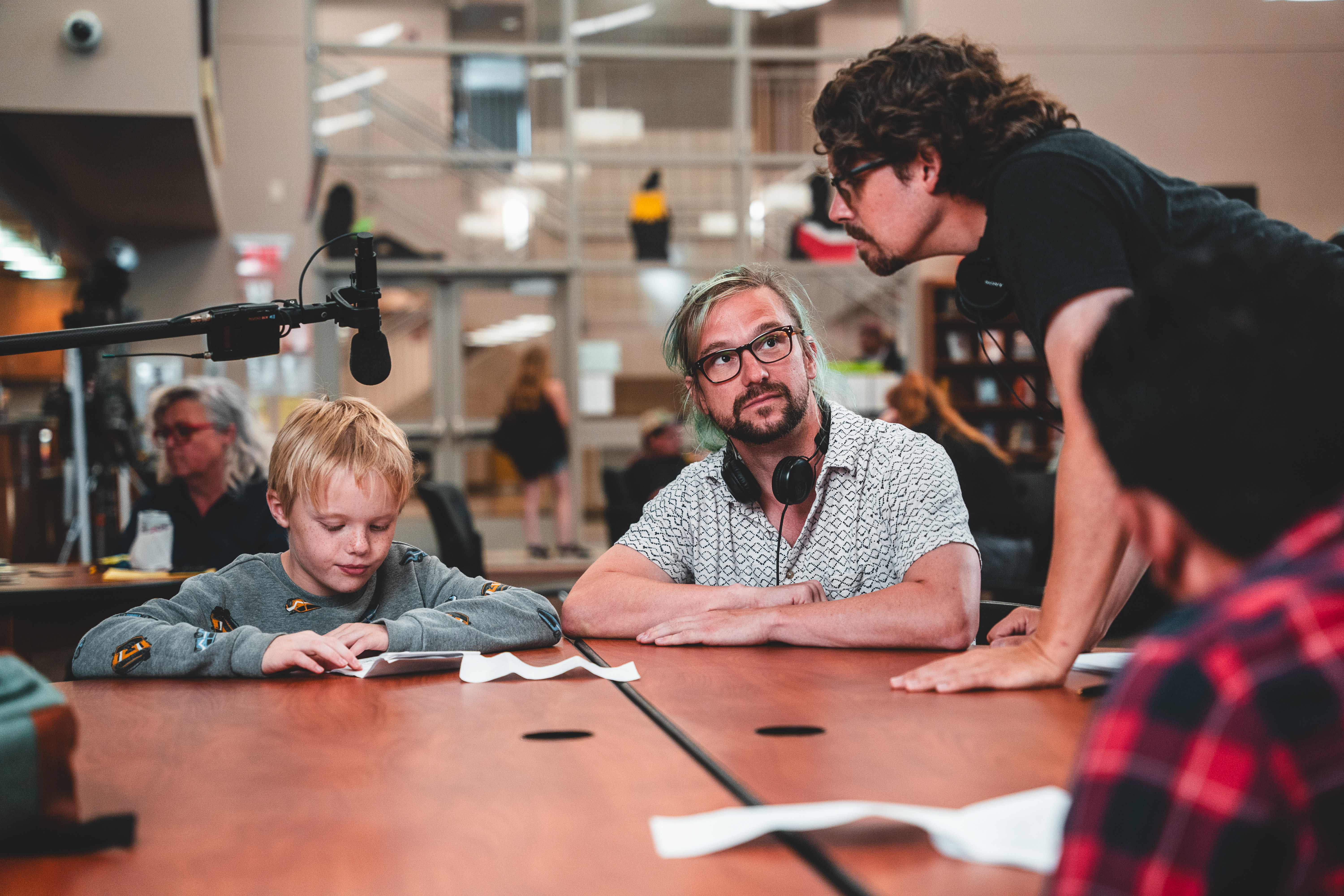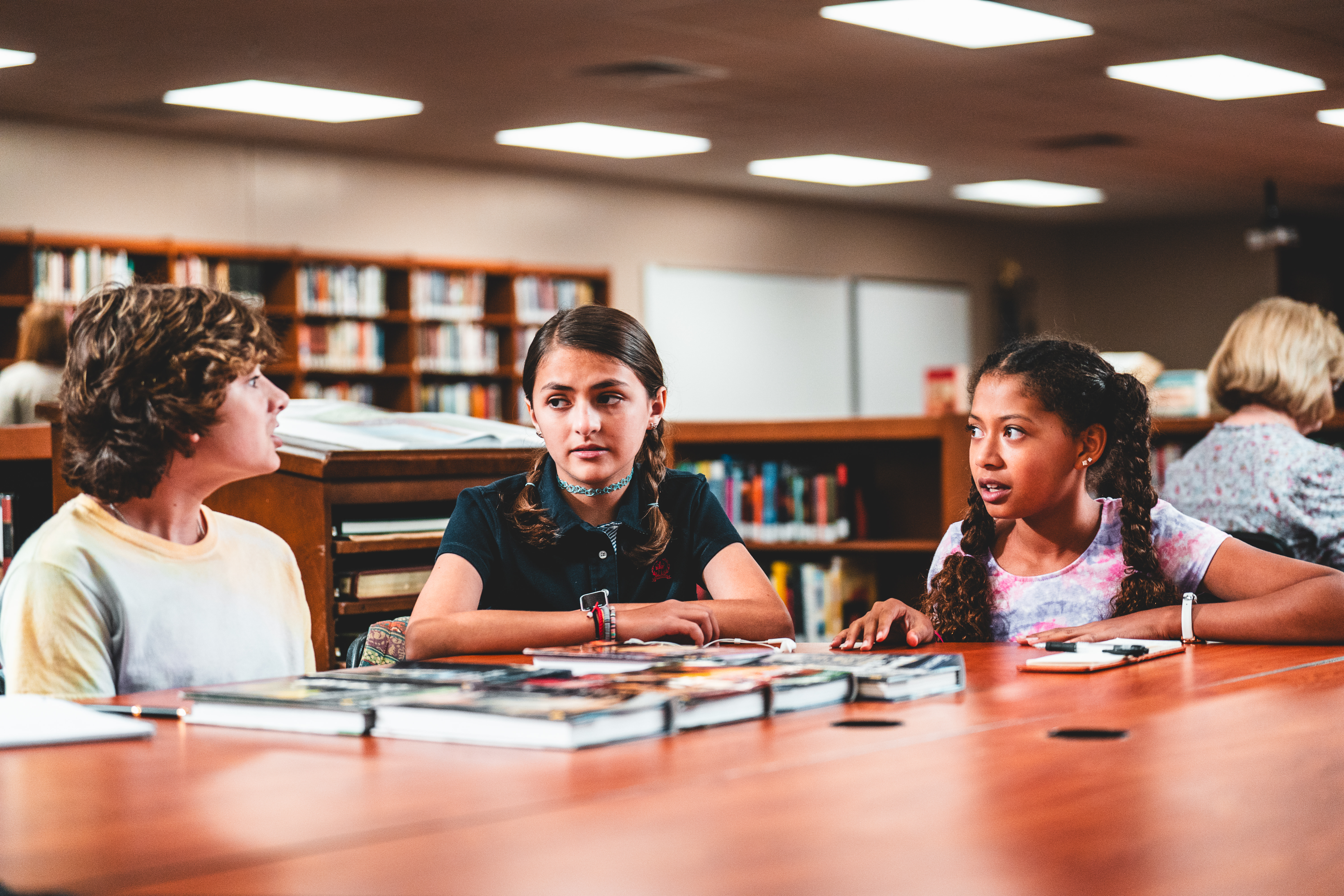Learning from Children
“Why are we doing this?”
I sometimes heard the question “Why are we doing this?” from students when I taught in the classroom. And it’s a valid question. Sometimes, learning takes place when we don’t even know it.
What does learning look like to you? As a teacher, I tried to engage my students in learning by designing relevant content, creating interactive learning experiences and making real-world connections. It worked most of the time, but my students were most engaged when I listened and learned from them.
As we set out to create “Mystery League”, I often thought about my former students. What could they learn from our show? What would they like to see? In addition to teaching about civics, economics and geography, how could we best engage them? I also thought about my own child. I’m the parent of a tender-hearted, wildly imaginative preschooler. What type of show would she enjoy?
One of my favorite television shows as a child was “Mister Rogers’ Neighborhood”. Mister Rogers taught me I am special just the way I am. He taught me that it’s my responsibility to be a good neighbor to others. Mister Rogers also taught me that there is always good in the world. If you look and listen closely, you will find the helpers. Those lessons have stuck with me as an adult. To me, that’s a true learning experience.
I think creators of the best children's shows take time to listen and learn from children. They also collaborate with a wide range of people to ensure their viewers can connect to the characters they see on screen. They create characters who model skills to help children learn and grow. When you watch these shows, you are reminded that children are important, unique and capable of great things.

Learning from Each Other
How did we try to center the voices of children in our show? How did we try to engage our viewers? We worked together and learned from each other.
“Mystery League” is a culmination of the hard work of more than 100 different people. Writers, directors, producers, educators, crew members, cast members and countless others worked together. We even collaborated with current classroom teachers and students to gather their feedback. The process wasn’t always easy. True collaboration includes conflict and compromise; we had a little of both throughout the process. As someone with a background in K-12 education, I knew very little about screenwriting, story development or television production.
This was true of many of the educators who worked on this show. We learned a lot from our production department colleagues, and I like to think that they learned from us, too.
Just like what I experienced as a teacher, some of “Mystery League’s” best lessons are the result of listening and observing. A few of my favorite life lessons from the show are listed below. I hope that children and adults will connect with our show and that the lessons they learn will stick with them long after the season ends.

A Few Life Lessons from “Mystery League”
- It’s okay to disagree. If you’ve been following along with our detectives, you’ve probably noticed that Mike, Millie and Marta all have very different personalities and backgrounds. This sometimes leads to conflict. However, they soon learn that conflict is not only okay but also a necessary part of learning to work with others. They each have unique qualities and opinions, but their differences are what make them such a terrific trio. Soon, they learn how to disagree while still respecting each other.
- Everything is not always what it seems. A teacher who is a robot? Crop circles in Mulberry Springs? Purple mystery mash? Our detectives have been putting their critical thinking skills to the test. Along the way, they have proved that everything is not always what it seems. Have you ever jumped to conclusions about someone or something without investigating first? I know I have. Our detectives continue to remind us to take a step back. Ask questions, observe, be open to learning, and who knows what you will discover!
- Anyone can make a difference in their community. It doesn’t matter who you are, you can make a difference. You don’t need to be a certain age or have a certain job. If you want to help your community, find ways to get involved. Lend a helping hand to a neighbor. Show gratitude to others. Keep your neighborhood clean. Help someone in need. The opportunities are endless!
Continue Learning
New episodes of “Mystery League” return Feb. 11. Watch live and on demand at myarpbs.org/watchmysteryleague. Want to learn more? Check out our website to download learning activities designed by licensed teachers, play online games, and more! Be on the lookout for more resources coming soon!
About the Author

Monique Davis is an Education Program Coordinator at Arkansas PBS, where she creates and facilitates learning experiences for families and educators. As a former public school teacher,
Monique believes access to high-quality education can transform lives. She sees educational media as a tool to increase this access.

